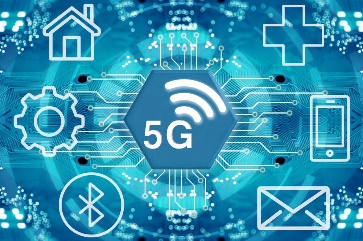
5G technology represents the fifth generation of mobile network technology, following previous generations (2G, 3G, and 4G). Its significance can be understood through several key aspects:
Higher Speeds: 5G offers significantly faster data transmission rates, with potential speeds reaching up to 10 Gbps. This enables quicker downloads, smoother streaming, and enhanced user experiences for mobile applications.








Lower Latency: One of the standout features of 5G is its low latency, often around 1 millisecond. This rapid response time is crucial for real-time applications, such as online gaming, autonomous vehicles, and remote surgeries, where delays could lead to catastrophic consequences.
Increased Connectivity: 5G networks can support a much larger number of devices per square kilometer compared to previous generations. This capacity enables the development and implementation of the Internet of Things (IoT), where countless devices can be connected and communicate efficiently.
Enhanced Capacity: With the ability to handle large amounts of data traffic, 5G networks can support bandwidth-intensive applications like augmented reality (AR) and virtual reality (VR), as well as high-definition video conferencing and streaming.
Network Slicing: 5G technology allows for the creation of virtual networks (or network slices) tailored to specific applications or user needs. This means that industries can customize their network parameters for different use cases, such as smart factories, healthcare setups, or public safety.
Economic Growth and Innovation: The rollout of 5G is expected to drive significant economic impact, fostering innovation across multiple sectors, including healthcare, transportation, education, and entertainment. This can lead to new business models, job creation, and enhanced productivity.
Support for Smart Cities: 5G is foundational for the development of smart cities, where data from various sources (like traffic sensors, public transportation systems, and environmental monitors) can be processed in real-time to optimize urban services, improve efficiency, and enhance the quality of life for residents.
Improved Reliability: 5G networks are designed to provide a more reliable connection, which is critical for applications in areas such as emergency services, where consistent communication is vital.
Global Competitiveness: The rollout and adoption of 5G can influence a country’s competitive edge in the global market. Nations that lead in 5G technology may attract investments and talent, driving advancements in related technologies and sectors.
Environmental Impact: While the deployment of 5G infrastructure requires resources, the technology can also contribute to sustainability efforts. For instance, enhanced connectivity can facilitate smart grids, efficient transportation systems, and better resource management, leading to reduced energy consumption and emissions.
In summary, the significance of 5G technology lies in its potential to transform communication, enhance connectivity, and drive innovation across diverse sectors, ultimately reshaping how individuals and industries interact with technology in everyday life. Its deployment heralds a new era of connectivity that underscores the importance of seamless, reliable, and fast communication in a progressively digital world.


Leave a Reply